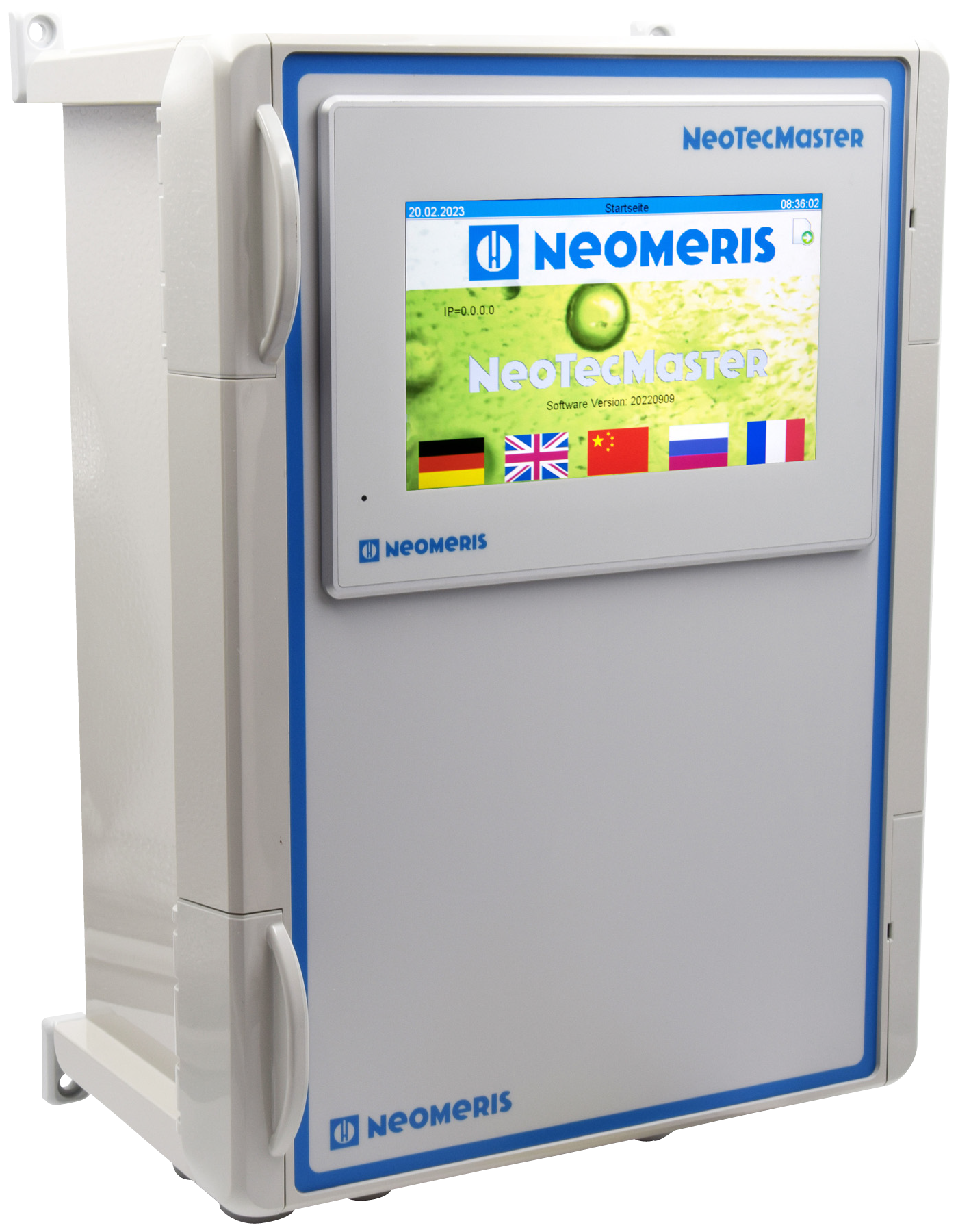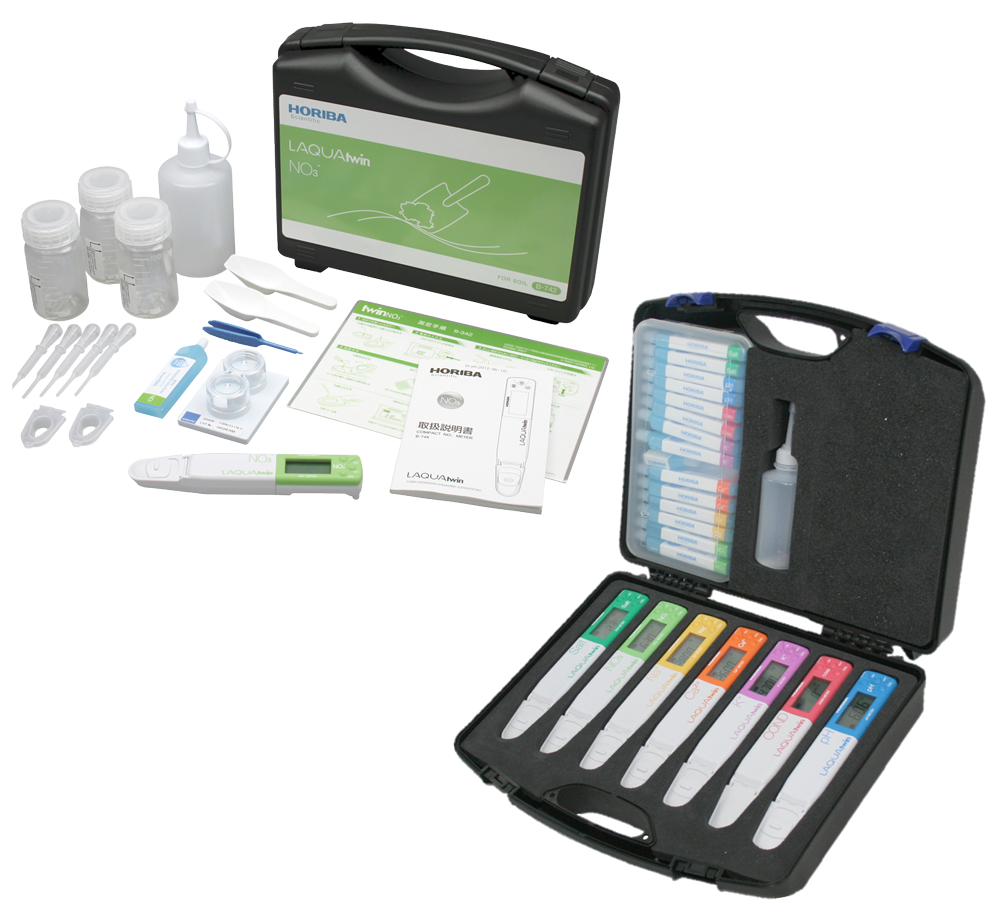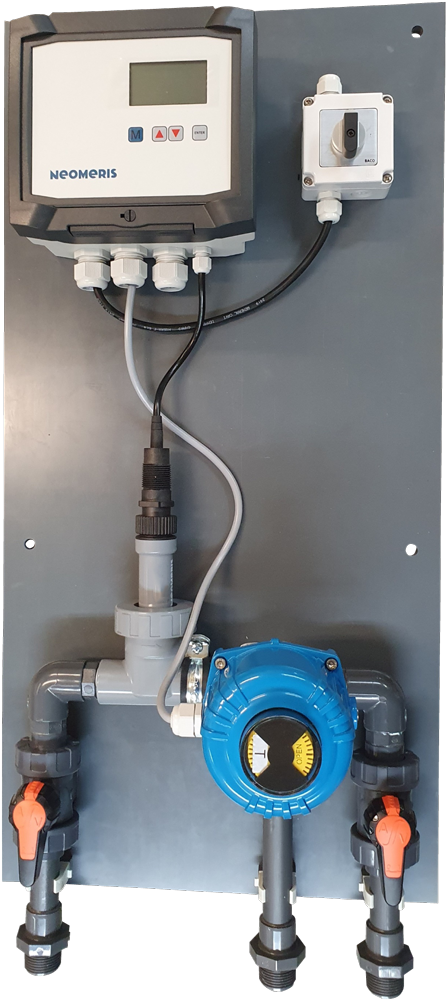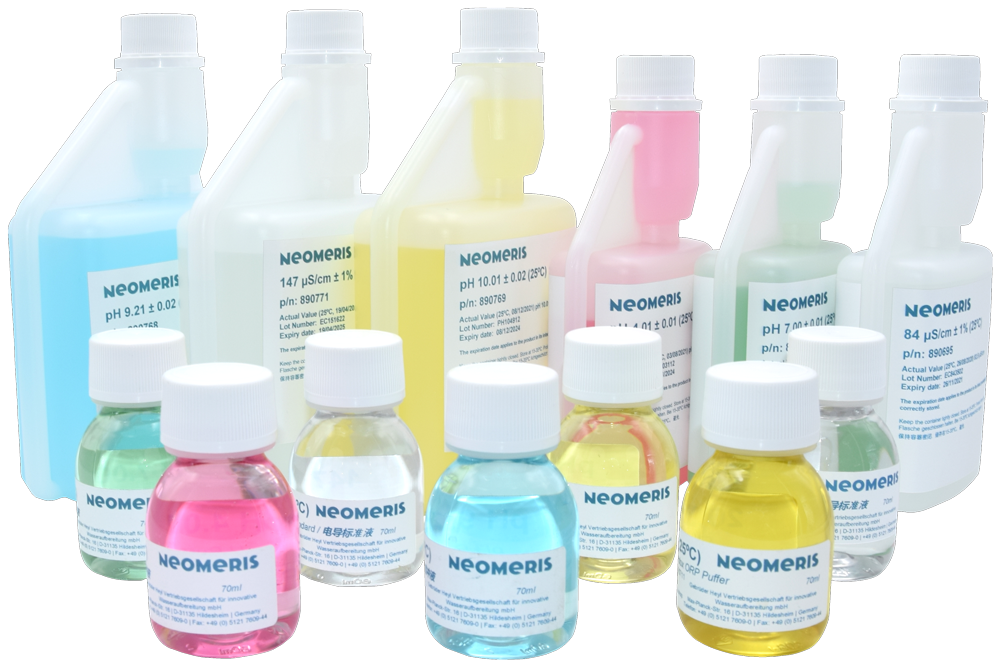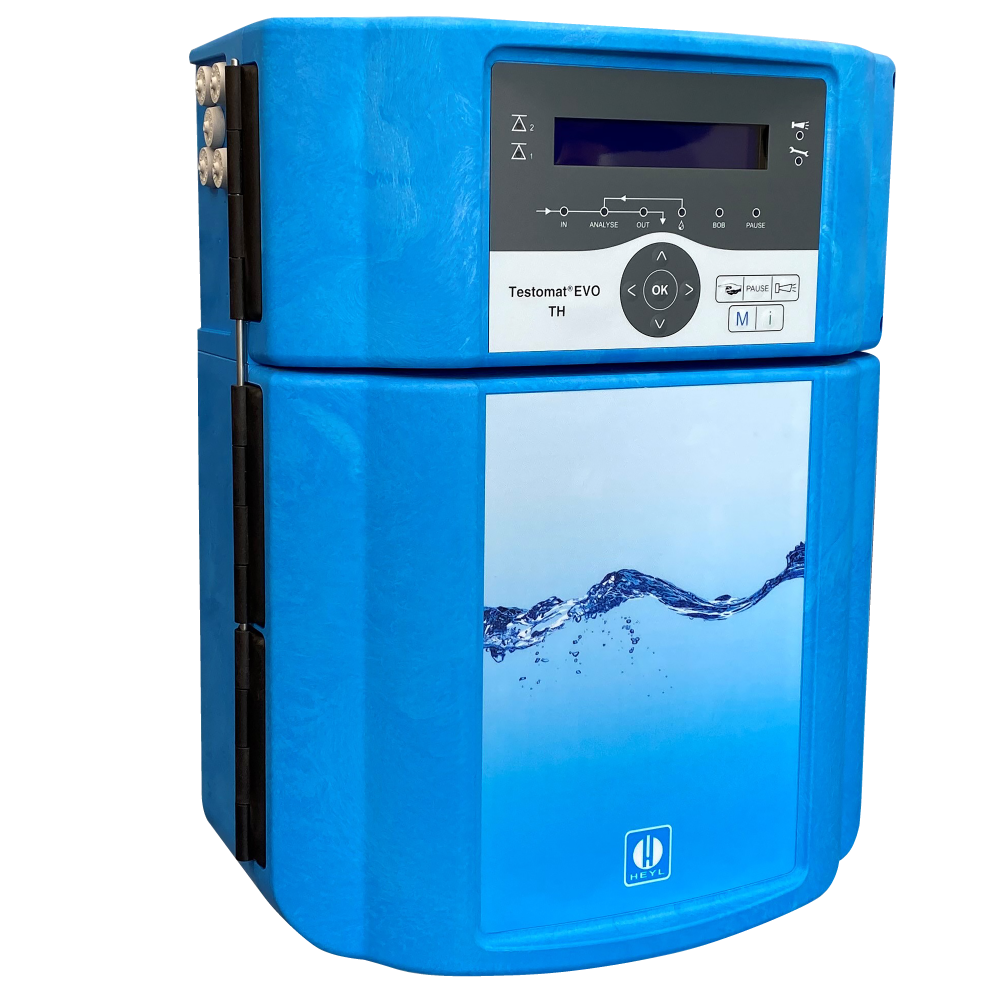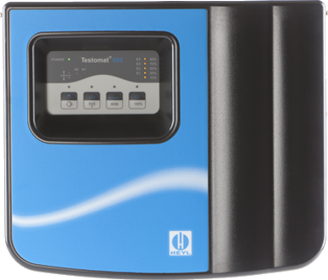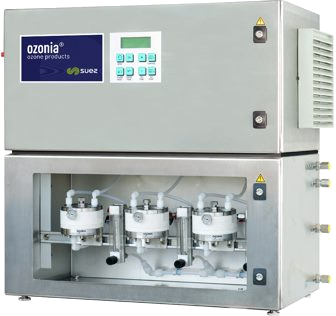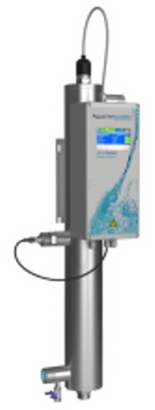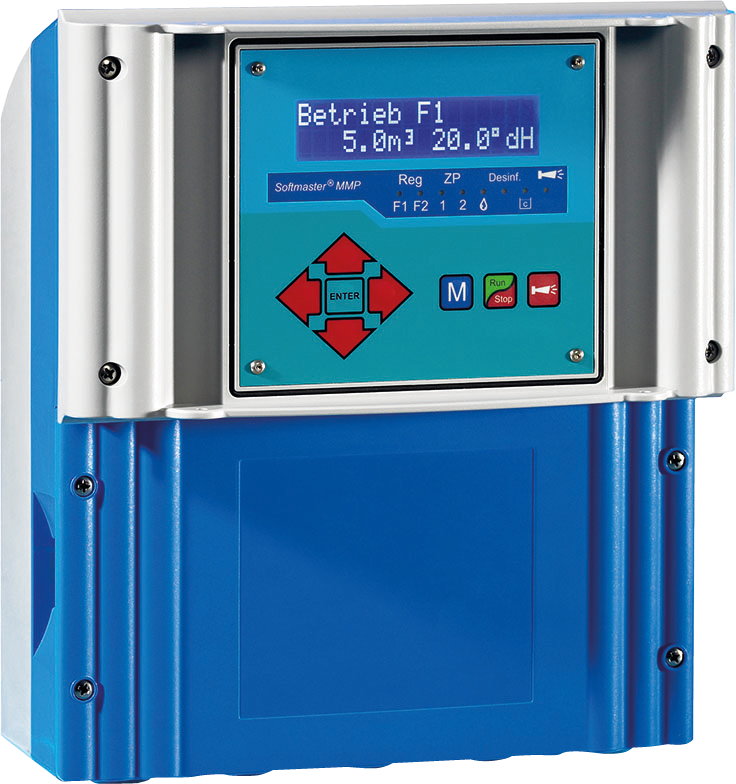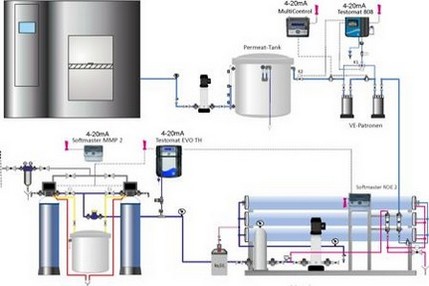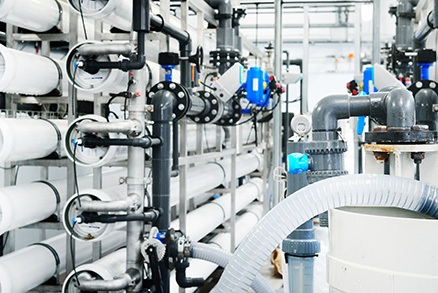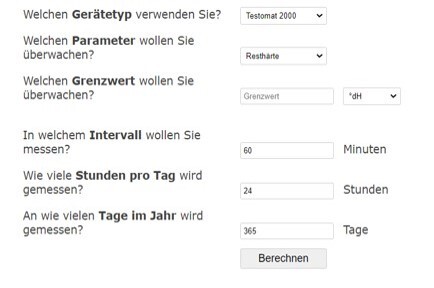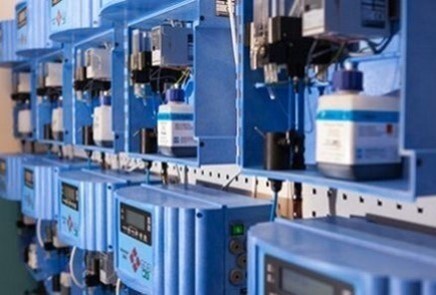System solutions for Water treatment plants Mannheim
Our product range
Pocket tester and analysis case
- Water and wastewater treatment: handheld meters are used to measure pH, conductivity, dissolved oxygen, ORP and other parameters in water and wastewater samples.
- Agriculture: Handheld meters are used to measure soil pH, nitrogen content, potassium content and other parameters in soil samples.
- Food industry: Handheld meters are used to measure pH, salt content and other parameters in food samples.
- Environmental analysis: Handheld meters are used to measure pH, conductivity, dissolved oxygen, ORP and other parameters in environmental samples such as soil, water and air.
There are many other applications for handheld meters, but these are some of the most common. Please note that the use of handheld analysers depends on the type of measurement and it is important to choose the right analyser for the application.
You also have the option of configuring your individual analysis case to customise your mobile laboratory to your specific application.
Some of the most common types of handheld meters are:
- pH testers: This type of handheld meter is used to measure the pH of liquids. They are available in different sizes and shapes and can be used for a variety of applications, such as water analysis, food and beverage analysis and agriculture.
- Conductivity testers: This type of handheld meter is used to measure the conductivity of liquids. They are useful for monitoring water quality and purity in industrial water treatment and agriculture.
- Oxygen testers: This type of handheld meter is used to measure the oxygen content in liquids. They are useful for monitoring bodies of water, drinking water and process water.
- Salinity testers: This type of handheld meter is used to measure the salinity of liquids. They are useful in monitoring salinity in seawater and in food and beverage analysis.
Advantages of hand-held measuring devices
Hand-held measuring devices are portable measuring devices that can be used to measure various parameters quickly and accurately. They have several advantages over stationary measuring devices:
- Mobility: handheld meters are small and lightweight and can be easily transported from one place to another. They are ideal for use in field research or in situations where a quick measurement is required.
- Easy to use: Handheld meters are easy to use and require no specialised training or knowledge. They are ideal for use by technicians or researchers who do not have extensive experience with measuring devices.
- Cost-effectiveness: Handheld meters are generally less expensive than stationary meters. They are ideal for use in situations where a limited budget is available.
- Fast measurements: Handheld meters can take measurements quickly and easily without the need for extensive equipment or a large laboratory. They are ideal for use in situations where a quick measurement is required.
It is important to choose the right meter for the application or parameter being analysed.
Mobile gas detectors
Would you like to use mobile gas detectors to detect specific sources of danger in an industrial environment? HeylNeomeris offers you the right sensor for your area of application.
Mobile gas detectors are used in companies to measure potentially hazardous gas concentrations in the air and detect them at an early stage. They are used to protect employees, the environment and to comply with safety standards.
The detectors are portable devices that can be carried by employees as required. They are battery-operated and have sensors that can detect different types of gases such as ozone, methane, hydrogen, etc.
Companies throughout Germany use mobile gas detectors in various areas, depending on the specific sources of danger. Mobile gas detectors are used, for example, in industrial plants. In factories and production facilities, the use of mobile gas detectors enables the detection of leaks or unusual gas concentrations in pipes, tanks or other systems.
The detectors can trigger audible and visual alarms if a dangerous gas concentration is detected. This allows employees to react quickly and take appropriate action, such as evacuating the area or shutting down equipment.
You can find a selection of our products (sensors and measuring devices) in our online shop under Gas measuring devices - Heyl Neomeris Shop
Can't find the gas detector you are looking for? Give us a call or contact us by e-mail or via our contact form. We will be happy to help you find a customised solution for your application.
Ozone generators
HeylNeomeris as your supplier for ozone generators - equipment technology for the disinfection of water and air as well as for the purification of process water in industry
Ozone generators are used to produce ozone and are extremely powerful and efficient. They are an important component of water treatment and in industry. Ozone generators are used in industrial water treatment, process water treatment and, in particular, in the pharmaceutical industry, where they are used to kill germs and disinfect water and air. Ozone generators therefore enable the disinfection of drinking water and swimming pool water, for example. The advantage of using ozone is its environmental friendliness, the short dwell time in the water and its neutral flavour.
You can find a selection of ozone generators in the HeylNeomeris product portfolio at Ozone and UV technology - Heyl Neomeris Shop .
If you have any questions, you can contact us by phone, e-mail or via our contact form. We look forward to your enquiry.
Residual ozone destroyer
Residual ozone destructors from HeylNeomeris for the reduction of excess ozone
Residual ozone destructors are devices that are used in water treatment to break down excess ozone. Ozone is a reactive gas that can be produced in the atmosphere as well as by some devices such as ozone generators. Ozone destructors destroy the ozone produced before it can be released into the environment.
They work by catalytic decomposition of ozone using special catalysts. Our system consists of a reactor housing, flow internals and droplet separators, Carulite 200 catalyst granulate and electrical trace heating. HeylNeomeris is a supplier of residual ozone neutralisers and offers you a broad product portfolio of catalytic residual ozone neutralisers.
You can configure and order your suitable residual ozone destroyer simply and easily via our online shop: Residual ozone destructors - Heyl Neomeris Shop
If you have any questions, please call us on +49 (0) 5121 7609-0. You can also send us an e-mail or use the contact form. We will take care of your request.
Test sets for hand analysis
HeylNeomeris specialises in the distribution of test kits for manual analyses, among other things.
Test kits for manual analyses are special kits or sets of tools, reagents and accessories that are used to carry out manual chemical and physical tests to determine the quality of drinking water.
In our product portfolio, we offer a variety of test kits in the field of pH value determination in water. Examples include the Testoval pH range 5.5 to 8 test kit and the Testoval pH range 8 to 12 test kit. In addition, the Testoval pH-Chlor DPD test kit can be used to measure both the pH value and the chlorine content in swimming pool water. In addition to the large selection of pH test kits, there is a wide range of test kits that are suitable for testing other relevant measurement parameters in drinking water, such as the Testoval aluminium colour comparison device, the polyamine test kit, etc. Our product portfolio also includes DUROGNOST limit value kits and DUROVAL drop count titration tests.
We are also happy to offer you our test kits with an OEM label. If you are interested, please contact us personally.
UV systems
HeylNeomeris as an expert and supplier of UV systems
UV systems are used in water treatment to kill microorganisms such as bacteria, viruses, yeasts and parasites.The systems work by irradiating the water with ultraviolet light, which destroys the organisms' DNA and RNA and thus prevents them from reproducing. UV disinfection is an effective method of water treatment as it requires no chemical additives and produces no harmful by-products.
UV systems are ideal for monitoring the water quality of water treatment, water blending and drinking water systems.They are easy to install and maintain.However, a precise technical design of the UV system is required to ensure that the UV disinfection does not fail to be effective and that the number of microorganisms is reduced to the desired minimum.
The quality and safety of drinking and process water can be guaranteed with a UV system.You can find a selection of our range of UV systems at UV systems - Heyl Neomeris Shop. In the product area, you will find products for different areas of application. If you have any questions or need advice, please contact us by phone or e-mail.
Calibration solutions
Calibration solutions are used to calibrate measuring instruments to a known reference to ensure that they provide accurate measurements.
HeylNeomeris offers a broad product portfolio of calibration solutions that are used in a wide range of applications, such as analytical chemistry, biochemistry, medicine, environmental analysis and the food industry.
There are various calibration methods for calibrating measuring devices.
A one-point calibration is a calibration method in which a measuring device is calibrated to a known reference by adjusting it to a solution with a known value. A two-point calibration is a calibration method in which a measuring device is calibrated to two known references by adapting it to solutions with two known values.
In one-point calibration, the meter is calibrated to a single point, while in two-point calibration, the meter is calibrated to two points. One-point calibration is easier and faster than two-point calibration, but two-point calibration is more accurate and reliable.
We offer a wide range of calibration solutions in different bottle sizes and disposable bags.
Multicontroller NeoTecMaster
Gebrüder Heyl Vertriebsgesellschaft für innovative Wasseraufbereitung mbH has been recognised as a competent and reliable partner in professional water treatment for decades. Our technology enables us to monitor the most important parameters in complex industrial water treatment plants. HeylNeomeris is a modern, steadily growing supplier of measurement and control technology as well as system technology for industrial water treatment based in Hildesheim. Founded in 2009, we have followed a remarkable growth path. We are proud of our corporate culture, which emphasises innovation and progress. In addition to the development and expansion of the web and online shop matrix, we have developed our own PLC control system in just 9 months. Our daily work consists of constantly offering our customers the best application solution. Therefore, part of our continuous endeavour is to adapt, improve and expand our products to the changing market needs. For this reason, we have developed a manufacturer-open multi-parameter system, the NeoTecMaster®, within 9 months.
The NeoTecMaster® is suitable for monitoring water treatment plants and enables the networking of a wide variety of measuring systems and their integration into process automation. The multicontroller can implement customised extensions such as connection to the mobile phone network via GPRS or the integration of remote maintenance functions. The system is able to process up to eight measurement signals as standard. We can also configure your customised solution on request, as the multicontroller concept can be expanded to 20 parameters and more. The integration of the complete Heyl measurement technology is possible. The data received is displayed in the form of trend graphs.
The system is available in German, English, French, Mandarin (Chinese) and Russian.
Buffer solutions
Buffer solutions are solutions that keep the pH value stable when acids or bases are added. Buffer solutions are used, for example, in biochemistry, analytical chemistry or formulation.
The HeylNeomeris product portfolio offers a wide range of buffer solutions.
Examples include redox buffer solutions, which are used to keep the redox potential of a sample constant. A redox buffer consists of a redox pair consisting of an oxidation and a reduction component, which are mixed in a specific concentration to generate a defined redox potential. Buffer solutions therefore consist of a conjugate acid-base pair and can keep the pH value of a solution relatively stable. Redox buffer solutions are often used in biochemistry. They ensure that reactions take place at a constant pH value.
Another example of buffer solutions from our HeylNeomeris range are the pH buffer solutions. The pH value is an important parameter when analysing water. It indicates whether a solution is acidic, neutral or alkaline. In pure water or in neutral solutions, the pH value is 7. A pH value below 7 indicates an acidic solution, while a pH value above 7 indicates an alkaline solution. In water analysis, the pH value is measured to determine the quality of the water. The pH value is an important parameter in many technical systems, especially in water treatment. The pH value influences the chemical reactions that take place in the systems and can therefore affect the efficiency of the systems. For example, a pH value that is too low can lead to malfunctions in wastewater treatment plants, as it inhibits the growth of microorganisms that are responsible for the decomposition of organic substances. A pH value that is too high can lead to deposits and corrosion in pipework and other system components. In heating systems, a pH value that is too low can lead to corrosion and damage to the systems. In agriculture, a soil pH value that is too low can impair the growth of plants.
Choose the buffer solutions for your area of application from our comprehensive range, which are available in different bottle sizes or disposable bags.
Stationary gas detectors
HeylNeomeris as your supplier for stationary gas detectors - for measuring gas concentrations and for continuous ozone measurement
Stationary gas detectors are used in companies to ensure the safety of employees and systems. They measure the concentration of gases such as toxic gases, oxygen deficiency, flammable gases and vapours that cannot be detected by the human senses. The detectors alert the worker at an early stage and increase occupational safety.
Stationary measuring devices can be used for continuous ozone measurement in manufacturing companies. They measure the ozone concentration in the air in rooms with ozone generators, residual ozone destructors and ozone treatment systems.
Our ozone measurement device is the Gasmaster III, which is small, robust and ergonomic.
You can find more information about our product portfolio at Gas measuring devices - Heyl Neomeris Shop
We are also happy to advise you on the phone or by e-mail.
Testomats and associated chemistry
The HeylNeomeris product portfolio offers you an extensive selection of online analysers, the so-called Testomat®, for measuring relevant water parameters in various applications. Water hardness monitoring is particularly well known. In addition to monitoring various hardness parameters, we also offer you a large selection of Testomat devices for monitoring so-called non-hardness parameters, such as iron, silicate, bromine, chlorine, etc.
In the Testomat world of instruments you will find limit value measuring instruments (Testomat® 808) as well as actual value measuring instruments (e.g. Testomat 2000, Testomat EVO, Testomat LAB).
Our Testomat devices use indicators and reagents for the analysis process. The indicator is titrated drop by drop into the measuring chamber via the dosing pump until the colour change occurs or the colour intensity is measured. Only use the original manufacturer's indicators and reagents from Heyl for the precise measuring devices.
You can calculate your individual consumption of indicators and reagents with our online calculation tools:
- Indicator consumption calculator - Heyl Neomeris Shop
- Reagent consumption calculator - Heyl Neomeris Shop
You also have the option of ordering a subscription for your optimised consumption. Your added value: When you take out a subscription, you will receive a warranty extension for your new device from 24 to 36 months if you take it out within the first 3 months of purchase.
Tradition and future for innovative Water treatment plants Mannheim
Water Supply in Mannheim
The water supply in Mannheim is largely provided by MVV Energie AG. The drinking water for Mannheim comes predominantly from the Rhine. The water is extracted by special water extraction and treatment plants and treated to supply the population. The Rhine water obtained is treated at MVV Energie AG’s waterworks.
The exact treatment processes can vary depending on demand and water quality. As a rule, treatment includes various stages such as sedimentation, filtration, disinfection and, if necessary, further treatment processes. Mannheim water contains around 500 milligrams of dissolved minerals per liter, a large number of important trace elements, and has no higher mineral salt content than mineral water. It is clear and neutral in taste. The treated drinking water is distributed throughout Mannheim via a network of pipes.
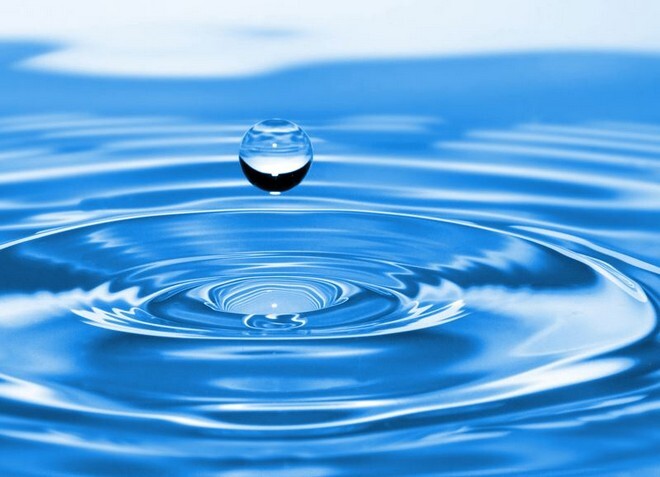
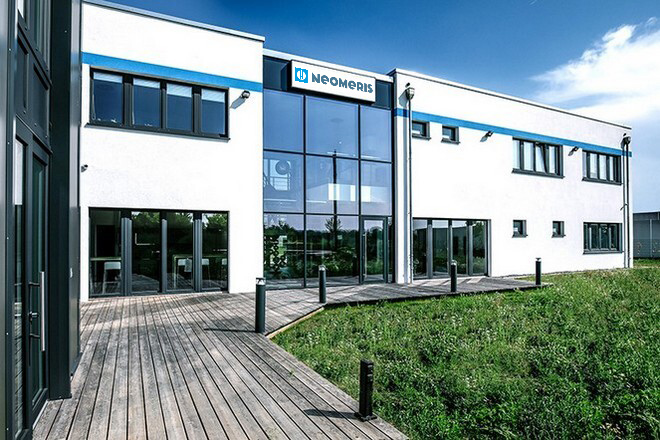
MVV Energie AG conducts extensive examinations and tests to ensure the purity and safety of the water. The water supply in Mannheim is generally provided via a water meter in each household or commercial establishment. The charges for the water supply are set by MVV Energie AG and billed on the basis of water consumption.
State-of-the-art water treatment technologies and sustainable use of resources: The impressive water supply in Mannheim, Germany
State-of-the-art water treatment technologies and sustainable use of resources: the impressive water supply in Mannheim
The water supply in the city of Mannheim is largely provided by MVV Energie AG. Here, most of the drinking water is taken from the Rhine and treated by special water extraction and treatment plants. The precise treatment processes vary depending on requirements and water quality in order to ensure optimum purity and safety of the drinking water. These processes typically include various stages of treatment such as sedimentation, filtration, disinfection, and other specialized treatment processes as appropriate.
During sedimentation, solids are removed from the water through targeted settling processes, reducing impurities and suspended solids. This is followed by filtration, in which the water is passed through special filters to remove the finest particles, turbidity and organic matter. Disinfection serves to kill microorganisms such as bacteria and viruses in order to protect the drinking water from pathogens. Various processes are used here, such as the addition of chlorine, ozone or UV irradiation. Depending on requirements, further treatment processes, such as activated carbon filtration or the removal of certain chemical compounds, can be used to ensure high water quality.
The treated drinking water contains about 500 milligrams of dissolved minerals and important trace elements per liter. It is important to note that the mineral content of drinking water is not higher than that of mineral water. In addition, the treated drinking water is clear and tasteless, which promotes its drinkability and versatile use in households and businesses.
The treated drinking water is distributed via an extensive network of pipes in Mannheim. This network consists of main pipelines transporting the water to the various parts of the city, as well as smaller pipelines supplying households and businesses directly. To ensure the quality of the drinking water on an ongoing basis, it is subject to regular monitoring and testing. MVV Energie AG conducts extensive tests to guarantee the purity and safety of the water. In doing so, it strictly adheres to legal requirements and the requirements of the Drinking Water Ordinance. The charges for the water supply are set by MVV Energie AG and are based on users’ individual water consumption.
The drinking water in Mannheim not only meets the strict requirements of the Drinking Water Ordinance, but even exceeds them. The City of Mannheim, with a 51 percent shareholding in MVV Energie AG, assumes responsibility for supplying drinking water. Drinking water is obtained exclusively from groundwater extracted in designated water protection areas. This enables the sustainable use of water resources and ensures a high standard of raw water in the long term.
MVV Energie AG operates several waterworks in Mannheim with impressive water treatment capacities. The Käfertal waterworks, for example, extracts up to 3,000 cubic meters of water per hour from 27 shallow and deep wells. The Rheinau waterworks is another important supplier of drinking water in Mannheim, extracting up to 6,300 cubic meters of groundwater per hour. Moreover, MVV Energie AG obtains around 18 percent of its drinking water from the Schwetzinger Hardt.
One crucial aspect of water supply is water hardness. In MVV Energie AG’s supply area, water hardness is classified as “hard”. Water hardness is determined by the content of dissolved calcium and magnesium compounds. The higher this content, the harder the water is classified. Calcium and magnesium are referred to as hardness minerals. Hardness is expressed either in millimoles per liter (mmol/l) or degrees of German hardness (°dH). In the supply area of MVV Energie AG, the total hardness is in the “hard” range. It is possible that limescale deposits may occur in household appliances when hard water is used. Therefore, the use of water softeners may be considered in such cases.
In order to promote a conscious and sustainable use of the precious resource water, various tips are given to the citizens of Mannheim. These include, for example, drinking tap water in order to save money and at the same time act in an environmentally friendly manner, as bottling and transporting bottled water consumes resources. Furthermore, it is recommended to use hot water sparingly to save energy. Avoiding the discharge of waste, pharmaceutical residues or toxins down the drain or toilet can protect drinking water resources. It is of great importance to use the valuable resource of water carefully and sustainably in order to ensure a reliable water supply in Mannheim in the long term.
